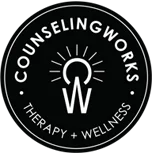Change is one of life’s constants. We learn and grow as we age and try to adapt and react to changes with the knowledge we have, the goals we have in mind, and the responsibilities we need to consider. However, over time we might find ourselves unsure about the path we’ve gone down or unhappy with how our lives currently look. We might even begin to feel like life has lost any meaning. We might wonder, “How did I get here?” “Why am I doing this?” or “Why aren’t I happy?” Most of us reach a point where we ask those questions and feel like there’s no simple answer we can find. While there are many reasons we might feel lost or unhappy, one of the most straightforward ways to start your journey toward a life worth living is by examining and understanding your personal values. Values-based work can be helpful to people struggling with a variety of issues including life changes/adjustments, identity issues, relationship problems, mood disorders, and eating disorders.
What are values?
The term “value” is used to describe the things we think are important and that provide life with meaning. Values are not goals; they can’t be accomplished, and they refer to individual beliefs and behaviors that are ongoing and consistent. They are built over time and often influenced by the morals and beliefs of the family, culture, or communities we grow up in. Even though our values can be informed by our environments, they belong solely to us as individuals and are not part of greater societal, religious, or cultural norms and expectations.
How can understanding your values help?
We all have some understanding of what matters to us most in life, even if we don’t have a list of specific values. For example, we might know that family is important to us, but we might not be able to say exactly how or why we value it, or what valuing family looks like to us. This can sometimes make it difficult to make choices (big or small) that help us prioritize the things that matter most to us. As life becomes more complicated it can get harder and harder to make decisions and follow through on goals in a way that aligns with our values. Many of our personal goals and responsibilities can interfere with our values; for example, career goals might necessitate spending a lot of time at work in order to move ahead toward financial or professional goals, but in order to do so you might have to sacrifice time spent with loved ones or on personal pursuits. This is part of why understanding why things matter to us is helpful. For example, let’s say one of my goals is getting promoted at work. In order to achieve that goal, I might have to spend a lot of hours in the office, work overtime, or prioritize work over other things in my life and miss out on things like my child’s soccer games or family meals. If family is one of my values, the way I’m pursuing this goal could come into direct conflict with that value frequently, which could leave me feeling conflicting emotions like guilt, regret, or resentment. It might also mean that I have less of something in my life that I really care about and enjoy. If I can figure out why I want to achieve this goal and what valuing my family looks like, it can help me figure out how to work toward my goal without contradicting my values. I might learn that my career goals are more connected to financial benefits, and that what I value about family is quality time spent with loved ones. This can help me make different choices in my career, such as setting work boundaries, switching jobs, or changing my work schedule to make more time for family events. Living in harmony with our values can help us add meaning and joy to our lives, and decrease the presence of negative emotions that can arise when we make decisions that go against our values.
How to identify your values
The first step to identifying your values doesn’t need to be difficult. Looking up a list of core values can be helpful, like this one:
https://brenebrown.com/resources/dare-to-lead-list-of-values/
Go through the list and highlight the ones that feel important to you as a person. Try to narrow it down as much as possible, ideally ending up with a list of no more than 5. Go through each value and try describing why you picked it. What stood out to you? What did it make you think of? What would it look like to live life according to this value? The goal here is to get a good understanding of why it matters to you and what it would look like in practice.
How to use your values in everyday life
The next step after identifying your values is to get an idea of how well you’re living according to them currently. Ask yourself where you see each value present in your life at the moment. Where are they not present? Are there areas of your life you feel like you need to work on refocusing your values, or any areas where you feel you’ve been acting in contradiction with any values? After you’ve done the work identifying all this information, you can begin to figure out what changes you might want to make or start making choices with your values in mind. It might seem difficult at first, but simply gaining awareness of what matters to you can be a helpful step in processing challenges moving forward. It can provide a lens for deciphering emotions or behaviors, or act as a compass when life changes occur and you have to figure out how to react and adapt.
One benefit of values-based work is that it’s something most people are able to do on their own, but it can be helpful to work directly with a mental health professional. If it’s something you think would be a benefit to you, try bringing this topic to your current therapist. If you don’t currently have one, try looking for a therapist with training in Acceptance and Commitment Therapy.






